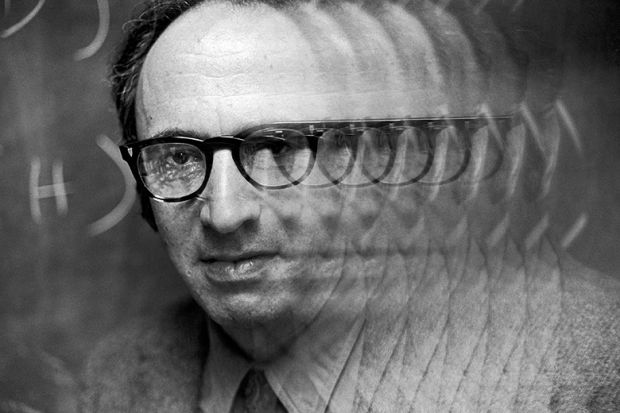When I was at Princeton University in 1972, there was a heated argument between Errol Morris, a fellow graduate student, and Thomas Kuhn, an eminent professor in the history and philosophy of science. Kuhn became so exasperated that he threw an ashtray at Morris and nearly hit him.
In short order, Kuhn kicked Morris off the programme. Although Morris would become a distinguished documentary film-maker, the ashtray incident continued to rankle.
Readily admitting that his book is a vendetta, Morris argues that Kuhn’s intolerance of dissent recalls George Orwell’s Big Brother in Nineteen Eighty-Four. Winston Smith finally comes to love Big Brother when threatened with having a cage filled with starving rats strapped to his face. This is almost “a perfect metaphor for being Kuhn’s graduate student”.
Kuhn had already stirred enormous controversy among academics with The Structure of Scientific Revolutions (1962), which argued that science evolves when a “reigning paradigm”– or accepted scientific theory – is challenged and finally replaced by another. For example, the revolutionary theory that the Sun, not the Earth, is at the centre of the solar system replaced the theory that the Sun revolves around the Earth.
Although this may be Kuhn’s ideal model, he found that those invested in the old paradigm usually cling to it. The new paradigm often explains “reality” better, but never completely.
Contrary to Morris, Kuhn accepted that the “incommensurability” of competing paradigms did not preclude comparisons. But their dispute went much further, encompassing whether truth is relative and dependent upon paradigm shifts, as Kuhn insisted, or real, as Morris argued.
This is of a piece with Morris’ films and earlier books, which centre on trying to discover the truth. For instance, Randall Dale Adams, sentenced to death for a murder he didn’t commit, was exonerated through Morris’ The Thin Blue Line (1988). His Oscar-winning The Fog of War (2003) explored the truth about Secretary of Defense Robert McNamara’s role during – and silence after – the Vietnam War.
Morris contends that Kuhn’s work has contributed to a growing postmodernist sense of words being “endlessly in flux”, causing the deconstruction of meaning. Morris also claims that Kuhn contributed to the “devaluation of scientific history” by insisting that truth is created more than discovered; that “conversion” and “faith” are more crucial than reason and evidence. Other scholars have gone beyond Kuhn in arguing that, for example, science and objectivity are merely Western cultural inventions.
The Ashtray may be beautifully illustrated, but it is hardly a coffee table book. Although Morris’ style is upbeat and witty, his many complex discussions, digressions and long marginal footnotes are often challenging.
The book’s subtitle is inaccurate. Kuhn insisted that we could never know the fundamental truth about reality, but that scientific theories enable more accurate predictions. He called scientists “reasonable men” who could communicate at least partially across revolutionary divides. Kuhn was nowhere as confused or as contradictory as Morris claims. As “fake news” and “alternative facts” pervade American culture, it is unfortunate that the book barely deals with them. Questions about what constitutes reality are ever more important in Trumpworld.
Howard Segal is professor of history at the University of Maine. His latest book is Technology in America: A Brief History (2018).
The Ashtray (Or the Man Who Denied Reality)
By Errol Morris
University of Chicago Press 192pp, £22.50
ISBN 9780226922683
Published 3 June 2018
Register to continue
Why register?
- Registration is free and only takes a moment
- Once registered, you can read 3 articles a month
- Sign up for our newsletter
Subscribe
Or subscribe for unlimited access to:
- Unlimited access to news, views, insights & reviews
- Digital editions
- Digital access to THE’s university and college rankings analysis
Already registered or a current subscriber?








